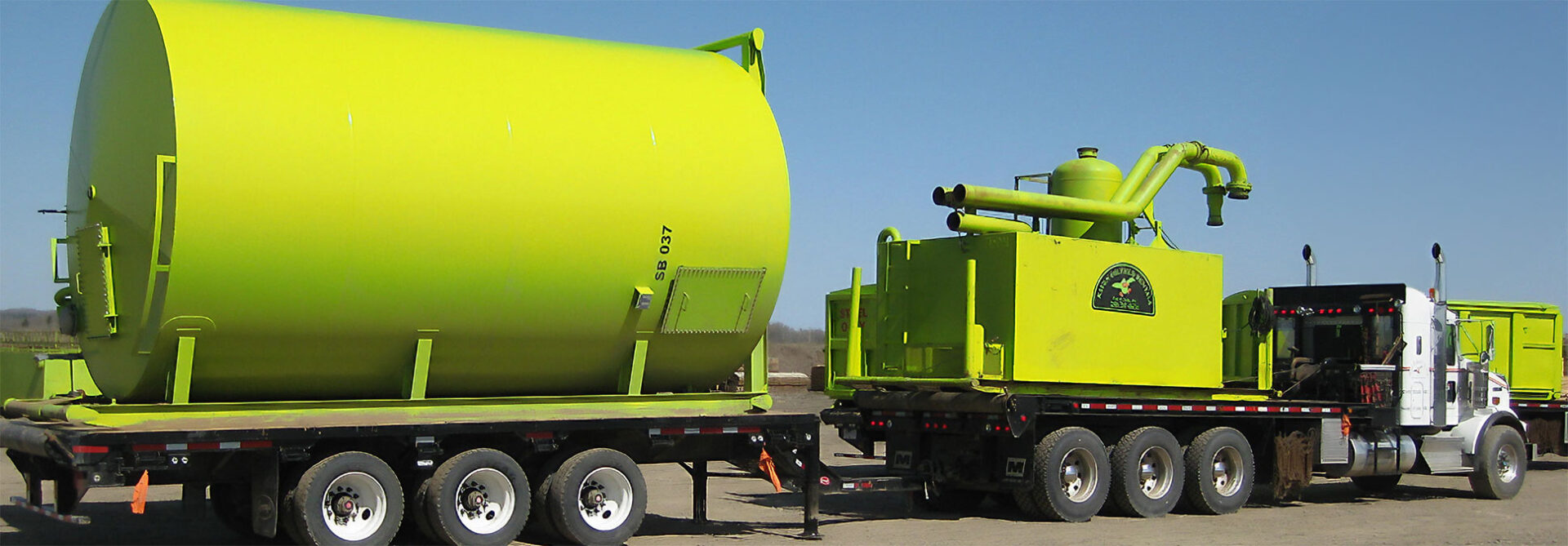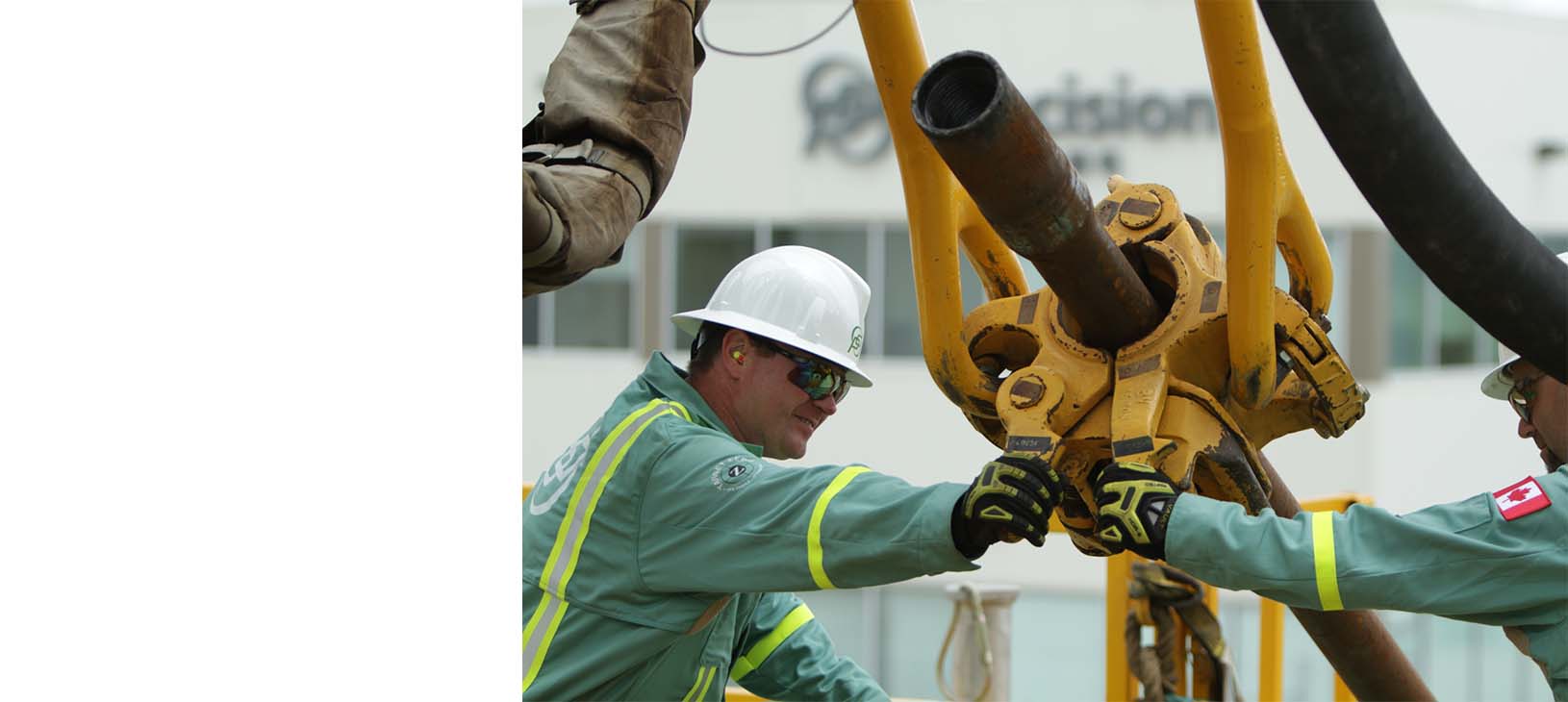Superior Oilfield pipeline equipment rentals: examples from the field
Wiki Article
A Comprehensive Overview to the Numerous Sorts Of Oil Field Equipment and Pipeline Equipment Available
The oil and gas market counts greatly on specialized tools for effective extraction and transportation. Various types of machinery, from piercing rigs to tank, play important functions in this complicated procedure. Each item of tools serves distinct functions that contribute to total functional success. Recognizing these parts is essential for anybody involved in the field. As the sector evolves, so also do the technologies that support it. What advancements are on the horizon?
Drilling Rigs: The Foundation of Oil Exploration
Drilling rigs work as the vital machinery in the domain name of oil exploration, making it possible for business to accessibility hydrocarbon books buried deep underneath the Planet's surface. These rigs can be found in different types, including land rigs, offshore rigs, and mobile units, each developed to run in certain environments. Furnished with innovative technology, drilling rigs can penetrate geological formations with accuracy, ensuring effective source extraction. The architectural stability and functional abilities of these rigs are critical, as they should hold up against severe problems and substantial pressures. Additionally, the choice of an exploration rig affects the overall project cost and timeline, making it an essential consideration for oil firms looking for to maximize their expedition efforts and make the most of productivity in their procedures.Pumps: Crucial for Liquid Movement
In the oil extraction procedure, the role of pumps is substantial, assisting in the activity of liquids throughout different phases of production. Pumps are essential for transferring crude oil, water, and various other fluids from below ground reservoirs to the surface area and after that with pipes to refineries. They can be found in different kinds, consisting of centrifugal, favorable displacement, and completely submersible pumps, each offering particular purposes based upon the liquid attributes and functional needs. Centrifugal pumps are typically utilized for their efficiency in high-flow applications, while favorable displacement pumps excel in managing viscous fluids. The option of pump influences total performance, functional safety, and upkeep prices. Correct selection and upkeep of pumps are important for enhancing manufacturing and reducing downtime in oil area operations.Shutoffs: Managing Circulation and Pressure

Shutoffs play an essential role in managing the circulation and pressure of fluids within oil areas and pipelines. Various kinds of valves serve distinctive applications, each created to meet certain features fundamental for effective operation - Superior Oilfield Rentals oilfield. Comprehending the attributes and usages of these shutoffs is important for optimizing system efficiency and security
Kinds of Valves
Crucial parts in oil field procedures, shutoffs play a vital duty in managing the flow and pressure of fluids within pipelines and equipment. Various types of valves are used to fulfill the diverse requirements of oil and gas manufacturing. Usual kinds consist of entrance shutoffs, which supply a straight-line flow and minimal pressure decrease; globe valves, understood for their throttling capabilities; and sphere shutoffs, identified for their quick on/off control. Furthermore, check valves stop backflow, while butterfly valves offer a light-weight option for regulating flow. Each valve type is created with certain products and arrangements to endure the rough conditions commonly found in oil areas, guaranteeing reliability and performance in procedures. Comprehending these kinds is important for reliable system management.Valve Applications and Functions
While various types of valves serve distinct purposes, their key applications focus on managing circulation and stress within oil and gas systems. Shutoffs such as entrance, world, and ball shutoffs regulate fluid activity, guaranteeing peak performance and safety and security. Gate shutoffs are generally utilized for on/off control, giving marginal flow resistance. World valves, on the various other hand, offer specific flow guideline, making them suitable for throttling applications. Sphere valves are preferred for their quick operation and limited sealing capabilities. On top of that, pressure safety valve are crucial for protecting against system overpressure, protecting equipment honesty. Generally, the appropriate option and application of shutoffs enhance operational performance, making certain the reputable transport of oil and gas with pipes and processing facilities.Compressors: Enhancing Gas Transport
Compressors play a crucial role in the reliable transportation of gas, making certain that it relocates smoothly through pipelines over fars away. These gadgets enhance the pressure of all-natural gas, allowing it to get over friction and altitude changes within the pipeline system. Additionally, compressors assist in the balancing of supply and demand, accommodating changes in intake and manufacturing rates. Numerous sorts of compressors are utilized in the sector, consisting of centrifugal, reciprocating, and rotating screw compressors, each offering distinct benefits based upon the functional demands. Regular maintenance of these compressors is essential to maximize effectiveness and lessen downtime, eventually adding to a dependable gas transport network. Their important function emphasizes the importance of compressors in the general oil and gas framework.Storage Tanks: Safe and Efficient Fluid Administration
Reliable transportation of all-natural gas relies upon different support group, one of which is the correct monitoring of tank. These tanks play an important function in securely including fluids, making sure that operational performance is maintained while reducing ecological threats. Built from durable materials, they are developed to hold up against high pressures and destructive elements. Properly sized and strategically located, storage containers facilitate the smooth circulation of gas and various other liquids, preventing traffic jams in supply chains. Regular upkeep and tracking are necessary to spot leakages or architectural concerns, promoting safety and security and compliance with regulative requirements. Inevitably, the effective administration of storage space containers is critical for the general honesty and integrity of the oil and gas industry's fluid handling systems.
Pipeline Systems: Infrastructure for Transportation
Pipeline systems serve as the foundation of the oil and gas market, promoting the effective transport of hydrocarbons over huge distances. These systems consist of numerous elements, consisting of pipelines, shutoffs, pumps, and compressors, all diligently designed to ensure smooth circulation. The products used in pipeline construction, commonly steel or high-density polyethylene, are chosen for durability and resistance to rust. Pipeline networks can cover throughout land and water, connecting production websites to refineries and circulation. Additionally, advanced innovation makes it possible for real-time monitoring of flow rates and stress levels, improving operational performance. The calculated placement of these pipes decreases ecological effect while taking full advantage of source availability, thus playing an essential function in conference energy demands globally.Security Equipment: Guaranteeing Employee and Environmental Defense
The procedure of pipeline systems, while essential for energy transportation, additionally provides significant safety obstacles for workers and the atmosphere. Safety and security equipment plays a significant role in reducing these threats. Personal protective equipment (PPE) such as headgears, gloves, and non-slip footwear safeguards employees from physical threats. Furthermore, gas detection systems keep track of for leakages, ensuring that harmful compounds do not position a danger to workers or the surrounding environment. Emergency closure systems are essential for quickly halting procedures throughout a crisis, protecting against potential catastrophes. Spill containment products, consisting of absorbents and obstacles, are basic for lessening ecological effect. On the whole, purchasing comprehensive safety equipment is critical for maintaining operational stability and shielding both employees more info and the atmosphere in the oil and gas industry.
Frequently Asked Inquiries
Just how Do I Pick the Right Oil Field Equipment for My Project?
Choosing the best oil field equipment includes assessing job specifications, budget restraints, and functional demands. Take into consideration aspects such as equipment integrity, compatibility with existing systems, and the distributor's track record to ensure peak efficiency and security.What Are the Upkeep Demands for Oil Field Equipment?
Maintenance needs for oil area tools include routine assessments, lubrication, and prompt repair work. Operators should likewise abide by producer guidelines, display efficiency metrics, and guarantee conformity with security laws to improve longevity and effectiveness.
Exactly How Can I Guarantee Compliance With Environmental Regulations?
To assure compliance with ecological regulations, business have to conduct regular audits, execute ideal methods, buy training, preserve proper documents, and remain upgraded on regulations (Superior Rentals midland). Cooperation with ecological agencies can additionally enhance adherence to guidelinesWhat Is the Ordinary Life-span of Pipeline Equipment?
The typical lifespan of pipeline tools typically ranges from 20 to half a century, depending on aspects such as material quality, ecological problems, and upkeep techniques. Routine evaluations can substantially affect durability and operational performance.How Do I Securely Deliver Oil Field Equipment to Remote Locations?
Transporting oil area equipment to remote locations requires cautious preparation, consisting of course assessment, securing permits, using suitable cars, and making sure security procedures are adhered to. Proper training and communication among staffs are necessary for successful transport.Report this wiki page